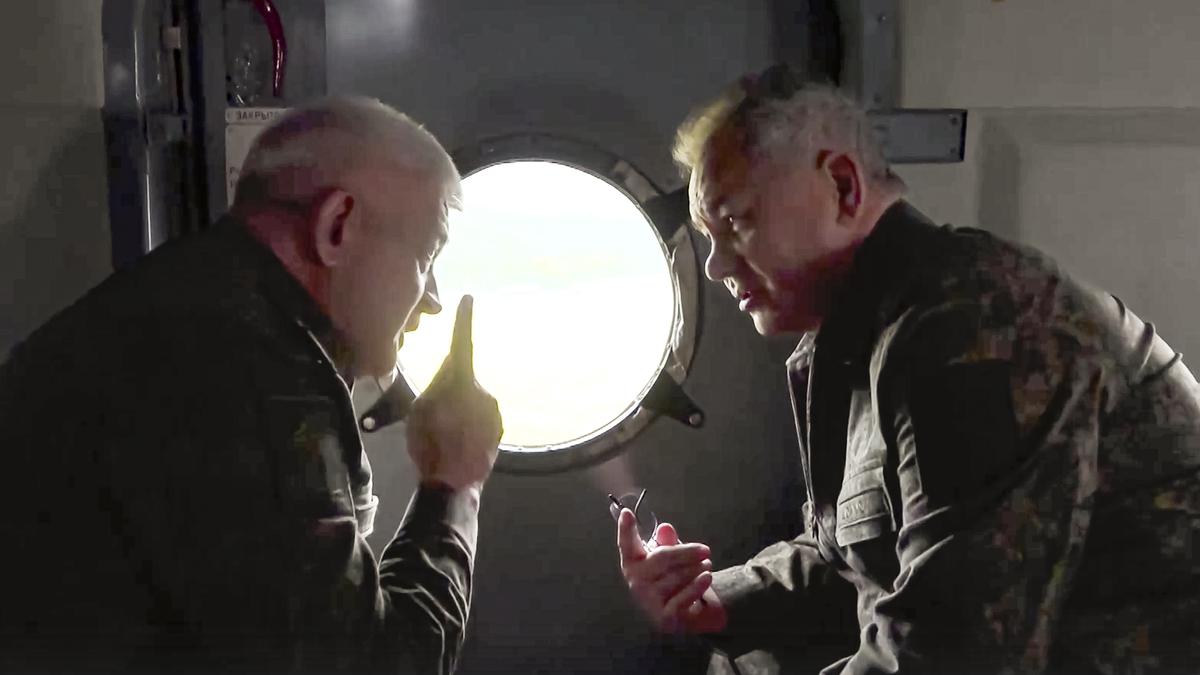
Russia tries to project a sense of order after mercenary revolt but uncertainty still swirls
The Hindu
Russian Defence Minister Sergei Shoigu made his first public appearance since a mercenary uprising demanded his ouster, inspecting troops in Ukraine in a video released on June 26 aimed at projecting a sense of order after the country’s most serious political crisis in decades.
Russian Defence Minister Sergei Shoigu made his first public appearance since a mercenary uprising demanded his ouster, inspecting troops in Ukraine in a video released on June 26 aimed at projecting a sense of order after the country’s most serious political crisis in decades.
But uncertainty still swirled about his fate, that of rebellion leader Yevgeny Prigozhin and his private army, the impact on the war in Ukraine, and even the political future of President Vladimir Putin.
Mr. Putin appeared in a Kremlin video address on Monday, speaking for the first time since the aborted mutiny of a mercenary chief this weekend.
Also Read | With Russia revolt over, mercenaries’ future and direction of Ukraine war remain uncertain
Mr. Putin addressed a youth forum dubbed the “Engineers of the future” where he praised companies for ensuring “the stable operation” of the country’s industry “in the face of severe external challenges”.
A feud between Wagner Group leader Prigozhin and Russia's military brass that has festered throughout the war erupted into a mutiny that saw the mercenaries leave Ukraine to seize a military headquarters in a southern Russian city and roll seemingly unopposed for hundreds of miles toward Moscow, before turning around after less than 24 hours on Saturday.
The Kremlin said it had made a deal that Mr. Prigozhin will move to Belarus and receive an amnesty, along with his soldiers. There was no confirmation of his whereabouts on Monday, although a popular Russian news channel on Telegram reported he was seen at a hotel in the Belarusian capital, Minsk.

U.S. President Donald Trump threatens 200% tariff on wine, champagne from France, other EU countries
Trump threatens 200% tariffs on European alcohol in response to EU levies, sparking trade tensions and market uncertainty.












